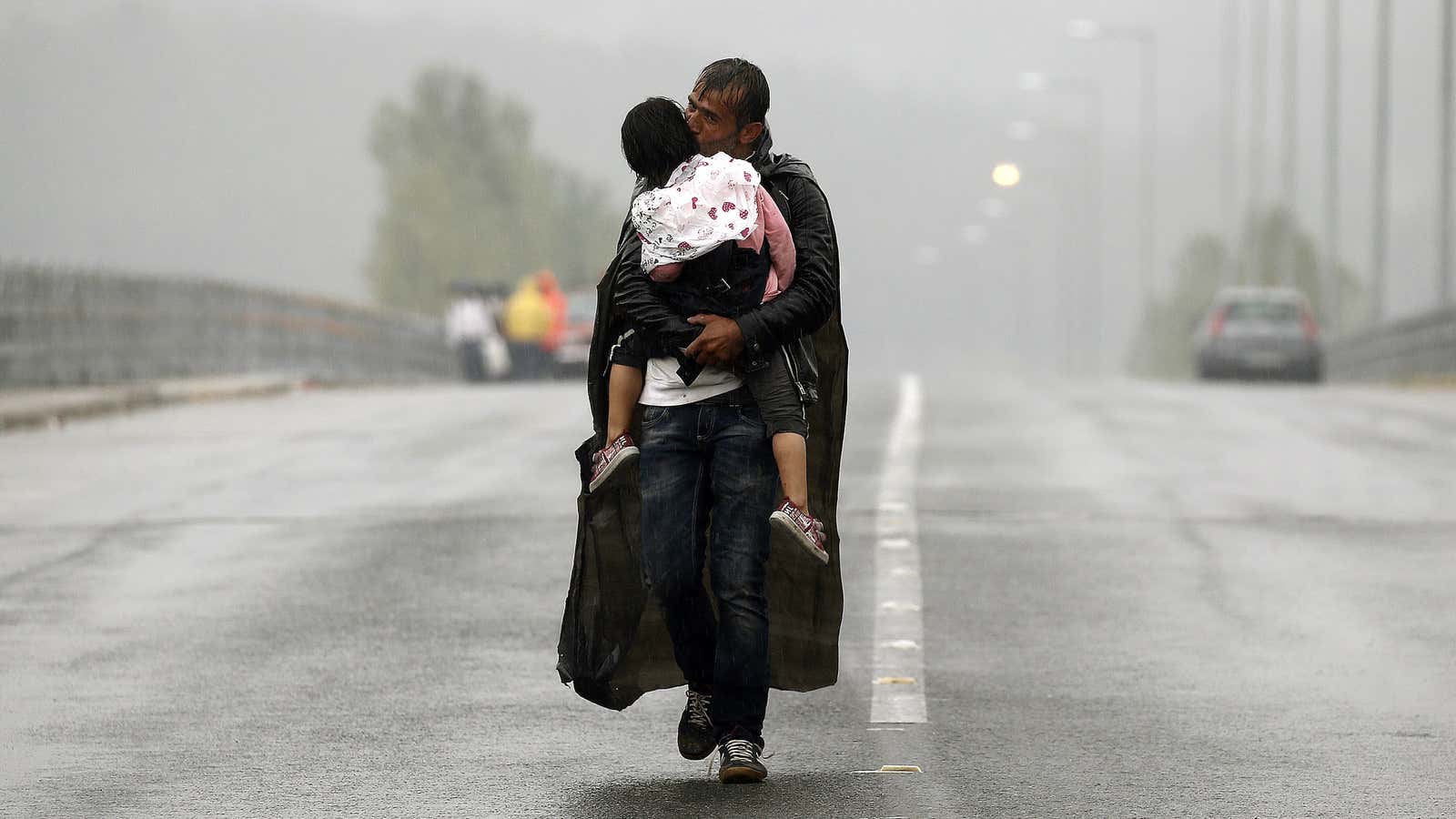Following a series of terrorist attacks on Paris, which has so far left 129 dead, a number of US state governors have vowed to block Syrian refugees from settling within the borders of their states.
“I will not stand complicit to a policy that places the citizens of Alabama in harm’s way,” Alabama governor Robert Bentley, a Republican, said in an official statement. “The acts of terror committed over the weekend are a tragic reminder to the world that evil exists and takes the form of terrorists who seek to destroy the basic freedoms we will always fight to preserve.”
The governors of Michigan, Illinois, Indiana, Texas, Arkansas, Massachusetts, and Louisiana (all fellow Republicans) made similar statements—seven state executives in all.
Most attempted to downplay any notions of racial or faith-based prejudice. Rick Snyder, governor of Michigan—home to America’s largest Muslim community—noted, “It’s also important to remember that these attacks are the efforts of extremists and do not reflect the peaceful ways of people of Middle Eastern descent here and around the world.”
But the fact remains that any executive order designed to refuse refugees or asylees on the basis of national origin is, by definition, prejudicial—and possibly a violation of the Civil Rights Act. Governors Snyder, Bentley et al are also likely to disappointed in their ability to enforce the lockdown, as the Refugee Act of 1980 gives the White House explicit authority over what refugees are accepted into and resettled in the United States.
But putting aside the logistics for a second, these types of harmful overreactions exaggerate stereotypes, exacerbate interfaith and interracial tensions, and, above all, denies safe haven to the Islamic State’s principal targets: actual Syrians.
It is painfully obvious that very few, if any Syrians seeking resettlement in the United States (or frankly any reasonably safe country that will have them) are terrorists or potential terrorists. Politics are not a priority for these refugees. Surviving is. And given the stringency and exhaustiveness of the US state department’s 18 to 24-month vetting and screening process, sneaking in via refugee-resettlement channels doesn’t appear to be a particularly efficient way for ISIL to embed a terrorist. Not when there are already homegrown would-be jihadis ripe for brainwashing and exploitation.
“Entering the US as a refugee is by far the most difficult and complex of all routes in,” wrote David Milliband, president and CEO of the International Rescue Committee, in an op-ed for the New York Daily News. “Refugees are the single most vetted population entering the country.”
The United Nations Refugee Agency (UNHCR) usually kicks off the process by identifying and prioritizing families in need. The UNHCR then subjects them to a thorough questioning, and documents their family history and the details of their escape from Syria.
In order to qualify for resettlement in the United States, the US Department of Homeland Security picks up where UNHCR leaves off, conducting more in-person interviews, collecting biographical and biometric information, and cross-referencing profiles with dozens of national and international intelligence databases.
“Expertly trained officers from the Department of Defense, the Federal Bureau of Investigation and multiple intelligence agencies are involved in vetting refugees before they are approved to travel to America,” Milliband wrote in the Daily News. “Further screening is also conducted when refugees arrive in the US, after their first year here, and if and when they apply for citizenship.”
And given that the US plans to resettle around 10,000 Syrian refugees in 2016, out of the 3.9 million registered with the UNHCR thus far, it’s safe to say gaining asylum this side of the Atlantic is arguably one of the steepest competitions in the world. It would be arguably easier for a potential terrorist to forge a passport and come to the US on a tourist visa.
Meanwhile, by trying to close the door on Syrians—husbands and wives, mothers and fathers, sons and daughters—American governors are playing right into Abu Bakr al-Baghdadi’s hands. Ultimately, alienating refugees is precisely what ISIL wants. It specializes in sewing discord between Muslims and the West, because this is its only political currency, its only form of recruitment marketing—meaning these politicians are feeding very propaganda machine that will be used to mold the next generation of ISIL footmen.




